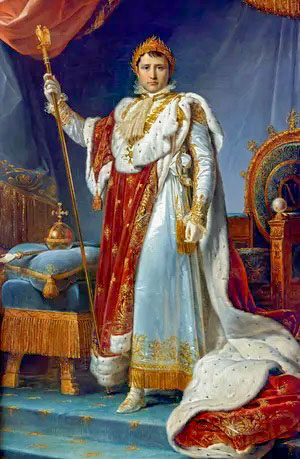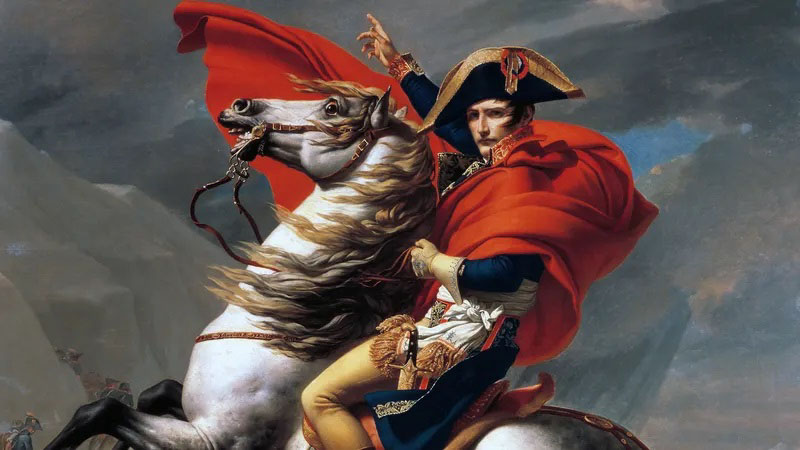Table of Contents
Napoleon Bonaparte, the political and military leader of Corsican origin, is one of the most influential figures in history. His rapid rise to power, marked by sudden military victories and political acumen, changed the course of European history. However, his ambition and endless thirst for conquest eventually brought him down.

Childhood and Military bend
Born into a noble family in Corsica on August 15, 1769, Napoleon showed an early talent for mathematics and history. In 1784, he entered the prestigious military academy in Paris and graduated four years later as a second lieutenant in the French army.
Napoleon and his military genius quickly emerged during the French Revolution. His strategic brilliance and ability to motivate his troops led to many impressive victories, including the Italian Campaign (1796-1797) and the Egyptian Campaign (1798-1799).
The rise of Napoleon’s power and empire
In 1799, Napoleon seized power in a coup and named himself First Consul of France. His reign was a period of stability and change marked by the introduction of the Napoleonic Code, a comprehensive legal system that reformed French law. In 1804, Napoleon’s ambitions reached their peak when he became Emperor of France.
During his reign, France became a great empire throughout Europe. His military prowess led to several victories, including the Battle of Austerlitz (1805) against Austria and Russia and the Battle of Jena-Auerstedt (1806) against Prussia.
Russian War
Napoleon’s greatest ambition was evidently its abolition. In 1812, he launched a devastating invasion of Russia, hoping to conquer a vast empire and establish French supremacy in Europe. However, due to the harsh Russian winter and the fierce resistance of the Russian army, Napoleon and his army retreated.
The return from Russia was a turning point for Napoleon. In 1814, after the defeat of a group of European powers, Napoleon was forced to flee the country and exiled to the island of Elba. However, his exile was short-lived. In 1815, he fled Elba and returned to France, regaining power within a hundred days. Napoleon’s final defeat was at the Battle of Waterloo (1815), where British, Prussian and Dutch forces defeated his army.
Also exiled on the remote island of St. Helena, Napoleon spent the rest of his life in solitude, thinking about his wonderful life.
Legacy and influence
Napoleon Bonaparte and his legacy are complex and multifaceted. He is undoubtedly one of the greatest military leaders in history, and his strategic acumen and tactical brilliance changed the course of the war. It had a major impact on French society and law, and the Napoleonic Code continues to influence legal systems around the world.
But Napoleon and his legacy were tarnished by his tyranny and the disastrous effects of war. His insatiable thirst for power led him to invade Russia, which cost hundreds of thousands of lives and marked the beginning of his downfall. Napoleon Bonaparte remains a fascinating and controversial figure in history, and his life is a testament to both spectacular achievements and tragic defeats.
His legacy is still being discussed and researched, and his impact on the world stage cannot be denied. (source: various articles on the Internet)
There is a movie directed by Ridley Scott and lead by actor Joaquin Phoenix on Napoleon, it is a work of fiction.

